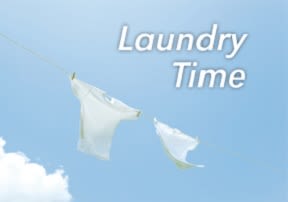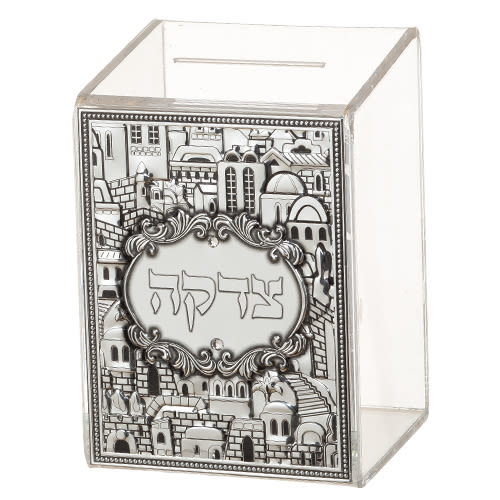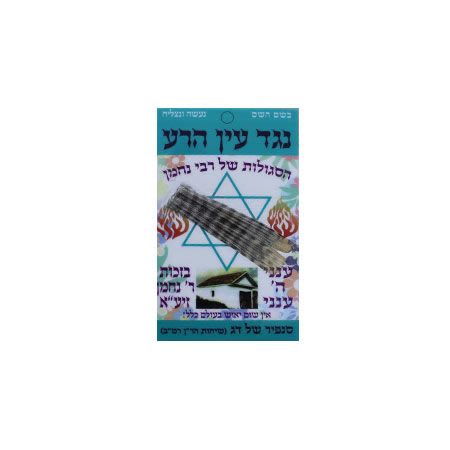
Laundry Time
Personal prayer whitens all our emotional “dirty laundry” – it’s our daily opportunity to freshen our lives and whiten our souls…

Translated by Rabbi Lazer Brody
In Forest Fields, Part 38
A person that comes to Hashem in personal prayer brings all his emotional “dirty laundry” – the things that sadden and discourage him, his fears and worries, the points where he’s disappointed in himself, his dislikes – everything! Emuna and personal prayer “whiten the laundry” and brighten his life by helping him to  realize that everything Hashem does is for the very best. In the respect, the optimal mindset for hitbodedut is the desire to live our emuna and realize that everything is for the best. This is a level of spiritual awareness that enables us to truly thank Hashem for everything – our successes and setbacks, our blessings and our shortcomings.
realize that everything Hashem does is for the very best. In the respect, the optimal mindset for hitbodedut is the desire to live our emuna and realize that everything is for the best. This is a level of spiritual awareness that enables us to truly thank Hashem for everything – our successes and setbacks, our blessings and our shortcomings.
 realize that everything Hashem does is for the very best. In the respect, the optimal mindset for hitbodedut is the desire to live our emuna and realize that everything is for the best. This is a level of spiritual awareness that enables us to truly thank Hashem for everything – our successes and setbacks, our blessings and our shortcomings.
realize that everything Hashem does is for the very best. In the respect, the optimal mindset for hitbodedut is the desire to live our emuna and realize that everything is for the best. This is a level of spiritual awareness that enables us to truly thank Hashem for everything – our successes and setbacks, our blessings and our shortcomings. Thanking Hashem for life’s problems and deficiencies brings a person to pure emuna. Emuna – the pure and simple belief in Hashem – is a prerequisite to true personal prayer, for how can a person speak to Hashem if he doesn’t believe that Hashem is with him and listening? In addition, nothing in the world brings a person to such tranquility of the soul as emuna – knowing that everything is from Hashem and for the best. This soothes the pain of life’s most difficult challenges.
Emuna brings a person to simcha, a deep inner sense of true joy. Therefore, the expressions of gratitude that lead to emuna are the key to successful and satisfying personal prayer. Rebbe Nachman of Breslev teaches (Likutei Moharan I:10) that simcha is the key to self composure, for a person who is happy has control over his thought process. One who isn’t happy is bewildered and therefore sorely limited in his ability to express himself to Hashem. For that reason, we should begin our personal prayers with expressions of gratitude to Hashem. In summary, gratitude leads to emuna, emuna leads to joy, and joy leads to inner peace.
Simcha prevails
Nachman of Breslev teaches (Likutei Moharan II:23) that a person must chase after despair and depression and drag them into the joy department.
People ask, “What if something is really bothering me? I just don’t feel happy!”
A depressed person can’t express gratitude for the things that he knows are good, much less for life’s challenges and hardships. Sometimes he adopts a strategy of looking for a good point and thanking Hashem for it, rather than directly confronting whatever it is that’s bothering him. That’s not the best way to escape depression.
The old expression says to grab the bull by the horns. We should take the most difficult problem we face and deal with it, asking Hashem to show us the truth and help us understand how our problem is for our very best. Frequently, we’ll need extensive prayer to believe that our biggest problem in life is for our ultimate good. Yet, in the meanwhile, we must cling to the belief that it certainly is for the best. Once we attain the emuna that whatever is upsetting us is for the best, we can now truly thank Hashem and do proper teshuva and self-evaluation.
Without feeling gratitude to Hashem and expressing it, a person cannot possibly pray sincerely or conduct effective self-evaluation, for with no gratitude there’s no emuna. Once a person begins to thank Hashem, simcha prevails, and one is now capable of moving forward in his personal prayer session to effective self-evaluation. Effective self-evaluation enables a person to identify that transgression or misdeed that triggered the difficult tribulation in the first place. Now that the person has identified his misdeed, he can correct it. Once he has done teshuva and has corrected the misdeed, then Heavenly sanctions are rendered superfluous. At this stage, the person’s problem simply vanishes. When we arouse ourselves to seek Hashem, He doesn’t need harsh wake-up calls to keep us from straying.
An honest heart
The advice of thanking Hashem for our problems is critical before serious soul-searching. Without it, intensive introspection is liable to bring a person to self-persecution and self-disdain. Thanking Hashem for our problems brings us to proper personal prayer whereas improper personal prayer is liable to perpetuate sadness and depression.
The reason people have difficulty in speaking to Hashem is because they’re not happy. Rabby Nachman of Breslev says (Rebbe Nachman’s Discouses, 20), that a person who’s happy for 23 hours a day can easily speak from a broken heart for an hour a day. But, a person who’s entire day is spent in depression and anxiety can’t speak to Hashem, for depression and emuna are mutually exclusive and without emuna, one cannot talk to Hashem. Therefore, we confront our most difficult problem and deal with it, asking Hashem to show us the truth and help us strengthen our emuna to the extent that we realize how our problem is for our very best. In essence, we are asking Hashem to help us truly believe in Him with an honest heart to open our door to sincere and effective personal prayer.
The ploy of thanking Hashem for our problems is not only for those on a high spiritual plateau – it’s for all of us. Remember, the negative feelings of unhappiness and depression are the opposite of emuna; emuna means that everything is for the best.
Gratitude is the result of an honest heart, for ingratitude is dishonesty, when one denies the wonderful favors that someone has done for him. An honest heart acknowledges those wonderful favors – large and small – and is therefore happy. King David therefore said (Psalm 97:11), “Joy goes to the honest of heart.”
To be continued.













Tell us what you think!
Thank you for your comment!
It will be published after approval by the Editor.